Essential Skills Every Lead Avionics Technician Job Seeker Should Have
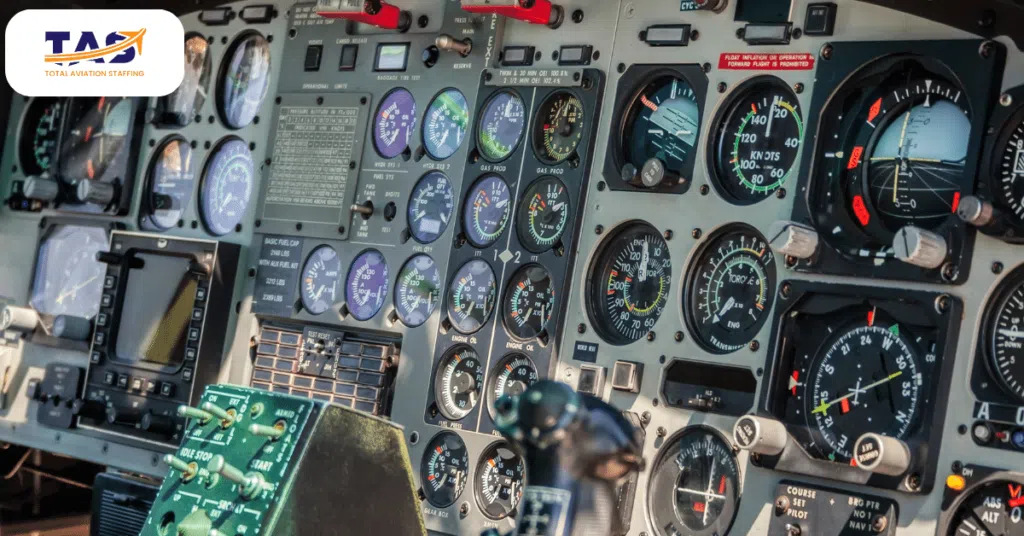
The role of a Lead Avionics Technician is nothing short of paramount. These skilled professionals are the unsung heroes who ensure that aircraft, from mighty jumbo jets to nimble regional planes, are not only ready to take to the skies but do so with the utmost safety and efficiency. But what does it take to become a sought-after Lead Avionics Technician?
Well, buckle up because in this blog we’re about to explore the essential skills that every aspiring job seeker in this field should possess. From technical prowess and problem-solving finesse to teamwork and time management wizardry, we’ll uncover the qualities that make these technicians soar above the rest. So, let’s take flight and dive into the world of the essential skills that define the Lead Avionics Technician job seeker!
1. Avionics Expertise
Lead Avionics Technician job seekers must possess essential avionics expertise to ensure the safe and efficient operation of aircraft. Their knowledge is crucial for maintaining aviation safety and efficiency.
Here are some essential areas of expertise you should contemplate acquiring:
In-depth avionics troubleshooting and repair skills on large aircraft.
Strong understanding of aviation regulations and safety standards (FAA/DOT).
Proficiency in aircraft maintenance histories and record-keeping.
Familiarity with Boeing 757/767 and heavy transport category aircraft.
Expertise is your passport to ensuring aircraft soar with safety and efficiency. From unraveling complex avionics puzzles to navigating the intricate web of aviation regulations, your dedication to mastering these skills will be your wings in this dynamic field. So, spread those aviation wings wide, and let your expertise be the guiding star in your career journey towards elevating aviation safety and performance.
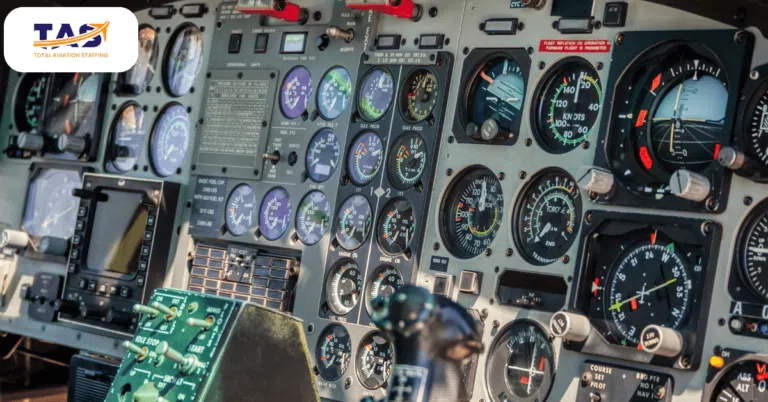
2. Technical Proficiency
For those pursuing this role, building robust technical proficiency is fundamental for ensuring aircraft maintenance and safety. This essential foundation is the key to excelling in their responsibilities while maintaining aviation standards.
Here are a few technical skills and proficiencies you should possess:
Extensive avionics troubleshooting experience.
A&P license (FAR 121.378a) for aircraft maintenance.
Advanced knowledge of aviation systems.
Expertise in wire repair and avionics systems.
Precision in diagnosing and repairing aircraft issues.
Familiarity with safety protocols and regulations.
Strong computer skills, including Microsoft Office.
Your technical prowess will be your compass in the world of aircraft maintenance and safety. Armed with avionics troubleshooting finesse, regulatory know-how, and a knack for precision, you’re ready to soar to new heights in this dynamic field. Let your skills be the wind beneath your wings as you navigate the skies of excellence in aviation.
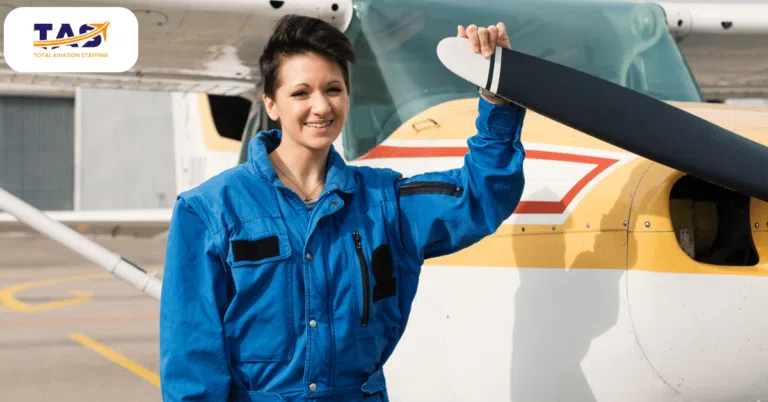
3. Aircraft Systems Knowledge
A deep understanding of aircraft systems is crucial for Lead Avionics Technician job seekers, enabling them to excel in troubleshooting and maintenance tasks. This comprehensive knowledge is the cornerstone of their effectiveness in the role.
Here are the essential knowledge areas you should contemplate learning:
Avionics systems integration.
Navigation and communication systems.
Flight control systems.
Electrical and electronic systems.
Radar and weather systems.
Autopilot and navigation aids.
Cabin pressurization and lighting.
Fuel and engine monitoring systems.
In the realm of aviation, Lead Avionics Technicians armed with robust aircraft systems knowledge are the unsung heroes who ensure the wings of safety and efficiency unfurl with each flight. So, let your expertise be the guiding light in the vast skies of aviation, and may your career soar to new heights as you keep the skies friendly and secure.
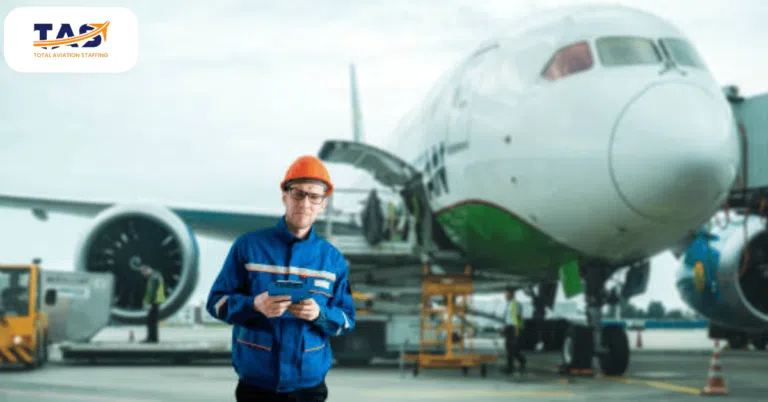
4. Problem-Solving
Job seekers must prioritize problem-solving skills, as they are vital for efficiently resolving aircraft issues and maintaining safety. These skills are essential for success in this role and ensuring the well-being of aviation operations.
Here are a few problem-solving skills you should work on developing:
Analytical thinking for diagnosing complex avionics issues.
Innovative solutions to troubleshoot unique problems.
Rapid decision-making in high-pressure situations.
Adaptability to changing circumstances during maintenance.
Attention to detail in identifying root causes.
Prioritization of critical issues for quick resolution.
As you set your sights on the path to becoming a Lead Avionics Technician, remember that problem-solving prowess is your compass through the complex skies of aircraft maintenance and safety. With analytical thinking, innovation, and the ability to make quick decisions under pressure, you’re poised to be the unsung hero ensuring smooth flights and secure landings.
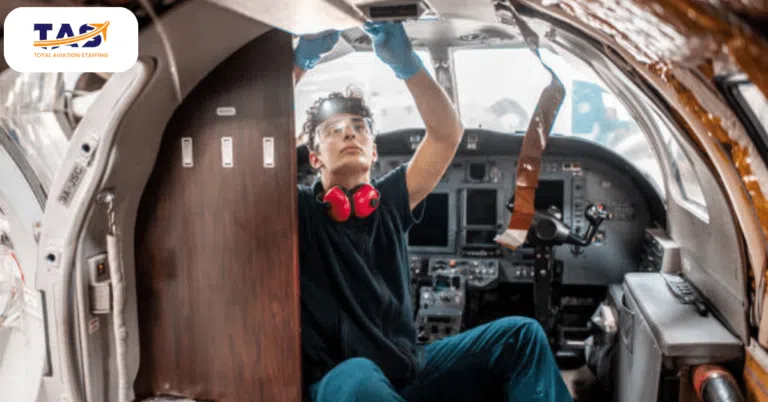
5. Attention to Detail
Attention to detail is critical for Lead Avionics Technicians as it ensures every aircraft component is meticulously inspected and maintained. Meticulous inspections, where no detail is too small to escape notice, are crucial for identifying potential issues before they become safety hazards.
By meticulously checking and documenting every system and component, Lead Avionics Technicians contribute significantly to aircraft safety and reliability. Small oversights in avionics systems can lead to critical malfunctions, making precision and thoroughness essential.
Furthermore, their work directly impacts passenger safety, regulatory compliance, and the longevity of the aircraft, highlighting the importance of an unwavering commitment to detail. In aviation, where even minor errors can have far-reaching consequences, meticulous attention to detail is the cornerstone of a successful career as a Lead Avionics Technician.
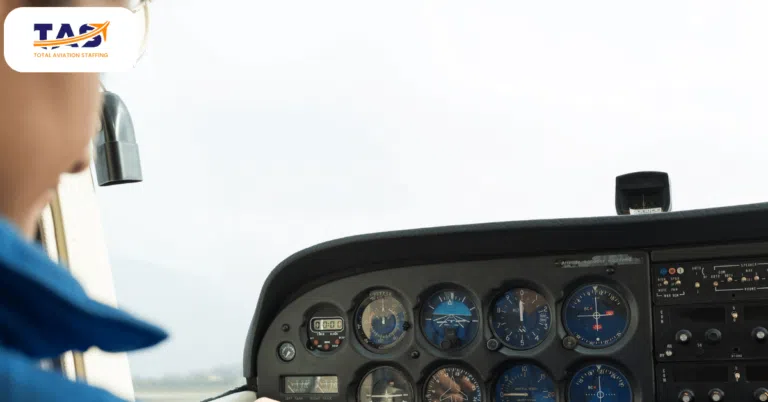
6. Teamwork
Teamwork is vital for Lead Avionics Technicians as aircraft maintenance is a collaborative effort demanding diverse skills and expertise. Effective teamwork fosters seamless communication, enhancing the efficiency and safety of aircraft operations. It enables technicians to pool their knowledge, problem-solving abilities, and technical proficiency to address complex issues promptly and ensure that maintenance tasks are executed with precision.
In aviation, where safety is paramount, a cohesive team can perform thorough inspections, share insights, and execute repairs efficiently, minimizing downtime and ensuring that aircraft are in optimal condition for every flight. Moreover, collaboration nurtures a culture of learning and continuous improvement, where technicians can exchange best practices and adapt to evolving technologies and regulations.
Ultimately, strong teamwork skills among Lead Avionics Technicians contribute significantly to the reliability and safety of the aviation industry.

7. Communication
They must possess effective communication skills to guarantee the safe and efficient execution of aircraft maintenance operations. These skills are paramount in upholding aviation standards and ensuring seamless teamwork.
Here are a few advantages of possessing strong communication skills:
Clear communication prevents misunderstandings and errors in maintenance tasks.
Facilitates collaboration among team members for efficient problem-solving.
Enables concise reporting of critical issues to maintain aircraft safety.
Enhances coordination with other departments and external teams.
Ensures compliance with regulations through effective documentation.
Supports training and knowledge transfer among technicians.
Builds trust and fosters a positive workplace environment.
Contributes to effective customer communication and satisfaction.
Effective communication skills are the runway to success in maintaining aircraft safety and efficiency. With clear communication, you’ll navigate the maintenance maze with precision, collaborate seamlessly with your aviation comrades, and keep the skies clear of misunderstandings. Make your communication skills the wind beneath your wings, soaring you to new heights in the world of aviation excellence, where trust, safety, and customer satisfaction take center stage.
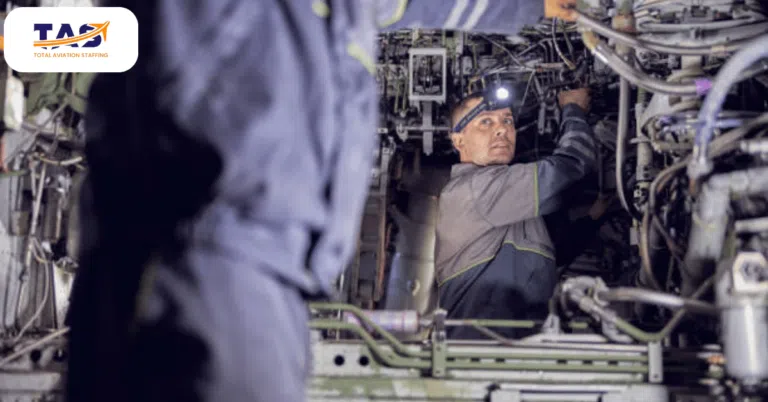
8. Safety Awareness
Prioritizing safety awareness is crucial to safeguard personnel and maintain smooth aircraft operations. Ensuring the well-being of both individuals and the aircraft itself is of utmost importance.
Here are some essential safety awareness points you should be mindful of:
Vigilance for potential hazards in the workplace.
Adherence to safety protocols and regulations.
Constant alertness to unsafe working conditions.
Comprehensive understanding of emergency procedures.
Emphasis on risk mitigation and hazard identification.
A proactive approach to preventing accidents and incidents.
Encouragement of a safety-first culture within the team.
Regular safety training and continuous improvement.
With their unwavering dedication to safety, they serve as the guardian angels of accident-free aircraft maintenance operations. With their expertise, they not only keep the skies clear but also ensure the wings of safety never falter. So, remember, when it comes to aviation, it’s the commitment to safety that truly makes them soar.

9. Time Management
Great time management is crucial for Lead Avionics Technicians as it optimizes aircraft maintenance operations. With multiple tasks, stringent deadlines, and safety as a top priority, these professionals must meticulously plan and allocate their time to ensure efficient workflow.
Well-honed time management skills allow Lead Avionics Technicians to:
Prioritize tasks based on urgency and importance, ensuring that critical maintenance issues are addressed promptly while routine tasks are managed efficiently.
Allocate adequate time for thorough inspections and troubleshooting, reducing the risk of overlooking critical safety concerns.
Coordinate with team members effectively, streamlining communication, and collaboration to expedite repairs and minimize aircraft downtime.
Plan for unforeseen challenges, allowing for flexibility in schedules and accommodating unexpected maintenance issues or delays.
Maintain compliance with regulatory requirements, ensuring that all necessary documentation and inspections are completed within specified timeframes.
Enhance productivity by minimizing time wastage and ensuring that every minute contributes to the safe and reliable operation of aircraft.
Foster a culture of efficiency within the maintenance team, promoting accountability and responsibility for meeting deadlines and goals.
Lead Avionics Technicians are the timekeepers of safety and efficiency. Their clockwork precision ensures aircraft are tip-top, regulations are met, and schedules are upheld, all while saving the day, one well-maintained plane at a time. So, when skies are friendly and schedules are tight, you can bet on these avionics wizards to keep it all on course.

10. Continuous Learning
Embracing ongoing learning is imperative to remain current and excel in their positions. Staying updated and committed to growth is the key to success in this dynamic field.
Here are several facets of continuous learning:
Keeping pace with advancements in avionics technology.
Adapting to changing safety regulations and protocols.
Expanding knowledge of new aircraft models and systems.
Enrolling in relevant training programs and courses.
Staying informed about emerging maintenance techniques and best practices.
Participating in recurrent safety and compliance training.
Seeking opportunities for professional development and certifications.
Sharing acquired knowledge with the team for collective growth.
Always remember that continuous learning isn’t just a checklist; it’s the passport to excellence. From riding the wave of cutting-edge avionics to dancing through the ever-evolving safety tango, Lead Avionics Technicians know that in this dynamic field, staying stagnant is never an option. So, armed with knowledge, innovation, and a shared commitment to taking aviation to new heights.
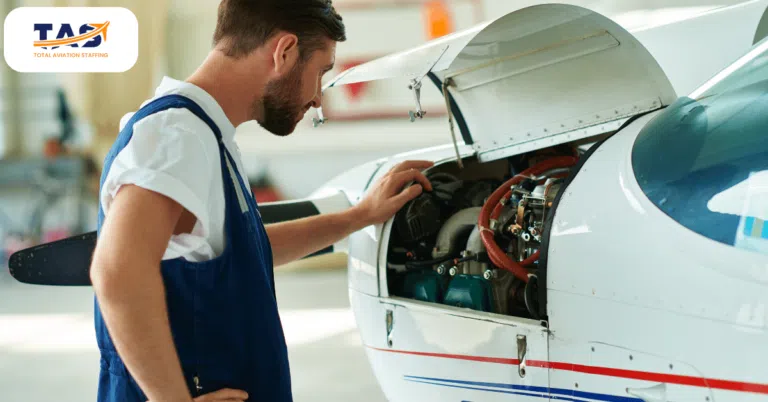
To Wrap Things Up
The skills we’ve unveiled today are the secret sauce behind every Lead Avionics Technician’s success. From untangling avionics intricacies to soaring through the skies with effective teamwork, these skills keep our aircraft safe and our journeys smooth.
So, whether you’re already soaring in the aviation industry or just beginning your ascent, remember that these skills are your trusty co-pilots on the path to excellence. And who knows, armed with these skills, you might just find yourself taking flight in the exciting world of Lead Avionics Technicians. Until then, keep your eyes on the horizon, and may your careers in aviation be turbulence-free!
Navigate Your Career Trajectory with Us
Ready to chart your course in the dynamic aviation industry? Total Aviation Staffing is your gateway to the skies! Whether you’re an experienced professional or just starting your journey, we connect you with top aviation companies across the U.S. Find your dream role as an A&P mechanic, aircraft technician, flight attendant, or aviation customer service.
We not only expand your job search but also offer resume-building assistance to help you secure that full-time position you’ve been dreaming of. So, don’t let your career stay grounded—take off with Total Aviation Staffing today and soar to new heights in aviation! Your adventure begins now.
